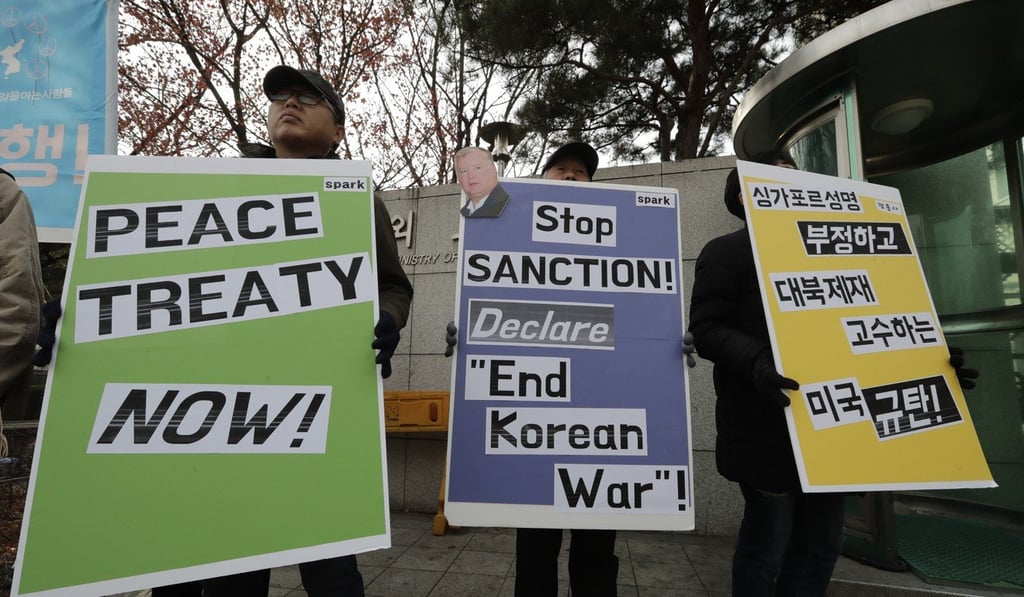Is the US about to lower the bar for North Korea denuclearisation?
- There are growing signs Washington is about to set aside its previous demand for complete disarmament after months of stalemate with Pyongyang
- Reports indicate the Trump administration is considering sanctions relief in exchange for concrete progress towards slowing down the North’s nuclear programme

On Wednesday, South Korea’s Foreign Minister Kang Kyung-wha said Seoul and Washington were discussing incentives to offer the North in return for significant actions toward nuclear disarmament.
Both sides can save face then
Unnamed South Korean officials, meanwhile, told Reuters this week the US was considering “interim” measures to end the gridlock. South Korea’s Chosun newspaper reported that the Trump administration was weighing sanctions relief in exchange for the North freezing its nuclear programme and sending its intercontinental ballistic missiles abroad for disposal.
The Trump administration, which has repeatedly insisted that there would be no sanctions relief before complete denuclearisation, has kept mum on reports of a change in policy.

At their first summit in Singapore last June, Trump and Kim signed a vaguely worded statement in which Pyongyang agreed to the “complete denuclearisation of the Korean peninsula”. Pyongyang has taken only reversible or largely symbolic steps toward disarmament since, holding out for “corresponding measures” from the US – widely interpreted to mean a relaxation of sanctions.